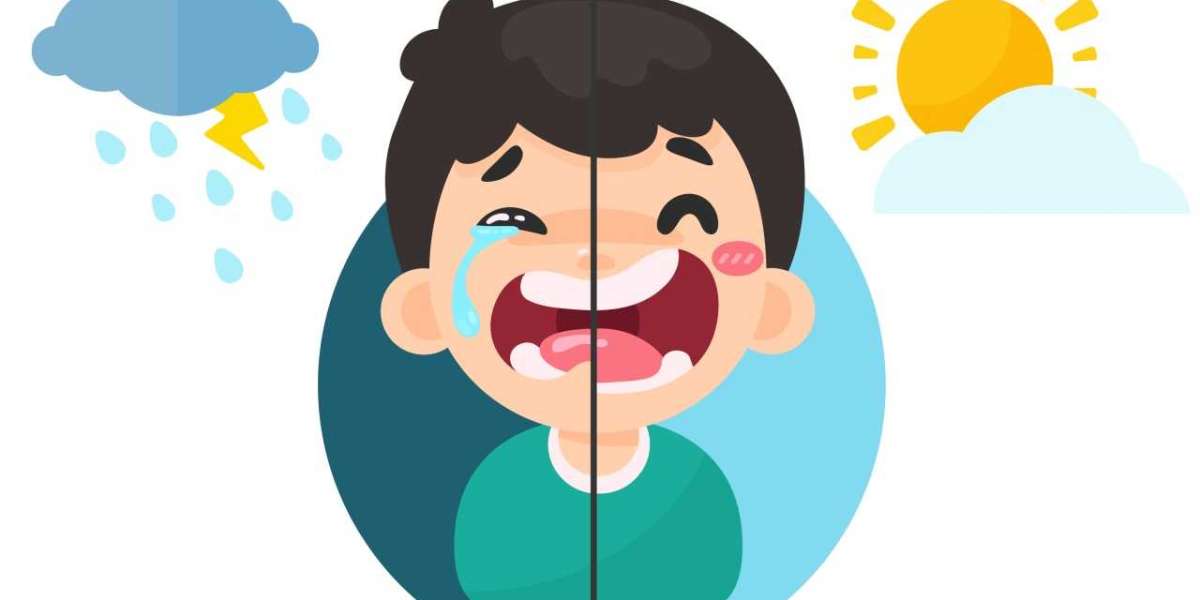Bipolar Disorder is one of the most common mental health disorders in the United States, but it is not always diagnosed. When it is diagnosed, there are several different types of treatment, including medications. The main symptoms are mood swings and an increased risk of suicide. There are also support groups and treatment options that can help people living with this disorder.
Symptoms
Bipolar disorder symptoms can be difficult to recognize. They can be triggered by stress or life events. Symptoms can range from euphoric feelings to extreme fatigue. The good news is that treatment can help reduce the effects of the symptoms and help people lead normal, healthy lives.
Although the cause of bipolar disorder is unknown, researchers believe it is related to changes in the brain's structure. It is important to discuss your symptoms with a doctor. Your care team will likely recommend medications, mental health care and psychotherapy.
Some of the mood episodes that are commonly associated with bipolar disorder include manic and depressive symptoms. A manic episode is a period of intense emotion and high energy. These episodes can last for days or weeks.
During a major depressive episode, a person's daily functioning is severely impaired. Symptoms include loss of interest in activities, trouble concentrating, significant changes in weight, and thoughts of suicide.
Diagnosis
Bipolar disorder is an illness that can cause serious disruptions in your life. It is a disease that affects the brain, and causes extreme mood changes. Unlike a typical mood swing, it is a persistent illness, meaning that you will need to continue to receive treatment for your symptoms.
There are a variety of causes for bipolar disorder, including brain damage, medications, and even drug abuse. However, one of the best ways to get a bipolar diagnosis is to talk to a healthcare provider. Your doctor will use your symptoms and medical history to diagnose the disease.
Your health care provider will perform a mental status exam and physical examination. They may also consider blood tests and urine tests. A physical exam can help rule out any other illnesses that are causing your symptoms.
If you have severe depression or mania, your GP can refer you to a psychiatrist. This is the first step in a treatment plan.
Treatment options
If you or someone you know suffers from bipolar disorder, you have many options for treatment. Choosing the best treatment can help reduce the severity of mood episodes and increase your chances of staying well.
Among the options available are medication and psychotherapy. While you'll want to be careful with the use of these treatments, they can provide important support.
Many bipolar patients try several medications before finding a combination that works for them. It's important to keep in touch with your health care provider and advocate for a treatment that's right for you.
Antipsychotic medications are a good choice for people with manic episodes. These drugs block dopamine receptors in the brain, reducing the risk of mania. They can also be used for severe agitation.
There are several treatment options for depression, including antidepressants, valproic acid, and lamotrigine. These medications can be effective for some people, but they can also cause serious side effects.
Support groups
If you or a loved one are living with bipolar disorder, a support group could be of benefit. They can help you cope with your illness, get advice on how to treat it, and gain a better understanding of what the condition is like.
There are many different types of support groups for bipolar disorder. Some are in person, while others are online. In-person groups are typically led by a therapist or facilitator.
Online groups are available through sites such as Sharecare and DailyStrength. These websites are free to join, and allow users to post messages, ask for support, and reply to other members' posts.
NAMI Connection is an organization that offers weekly support groups. The groups meet in a variety of locations across the United States. Many of the meetings are open to everyone, no matter where you live.
DBSA provides peer-led online and offline support groups for individuals with bipolar disorder and their families. The website offers general information on the condition, as well as specific groups for people with different levels of severity. It also features inspiring stories, education, and resources.







